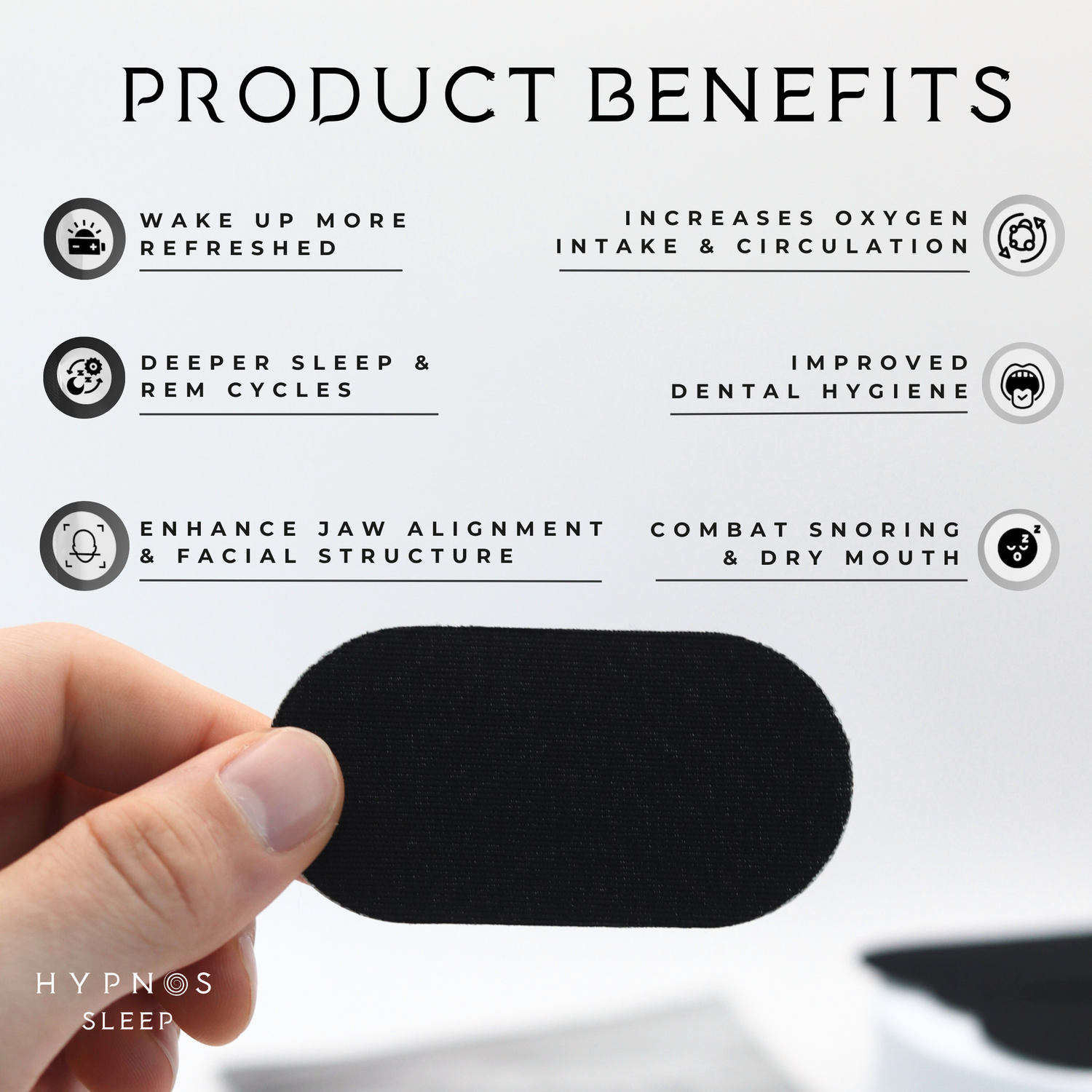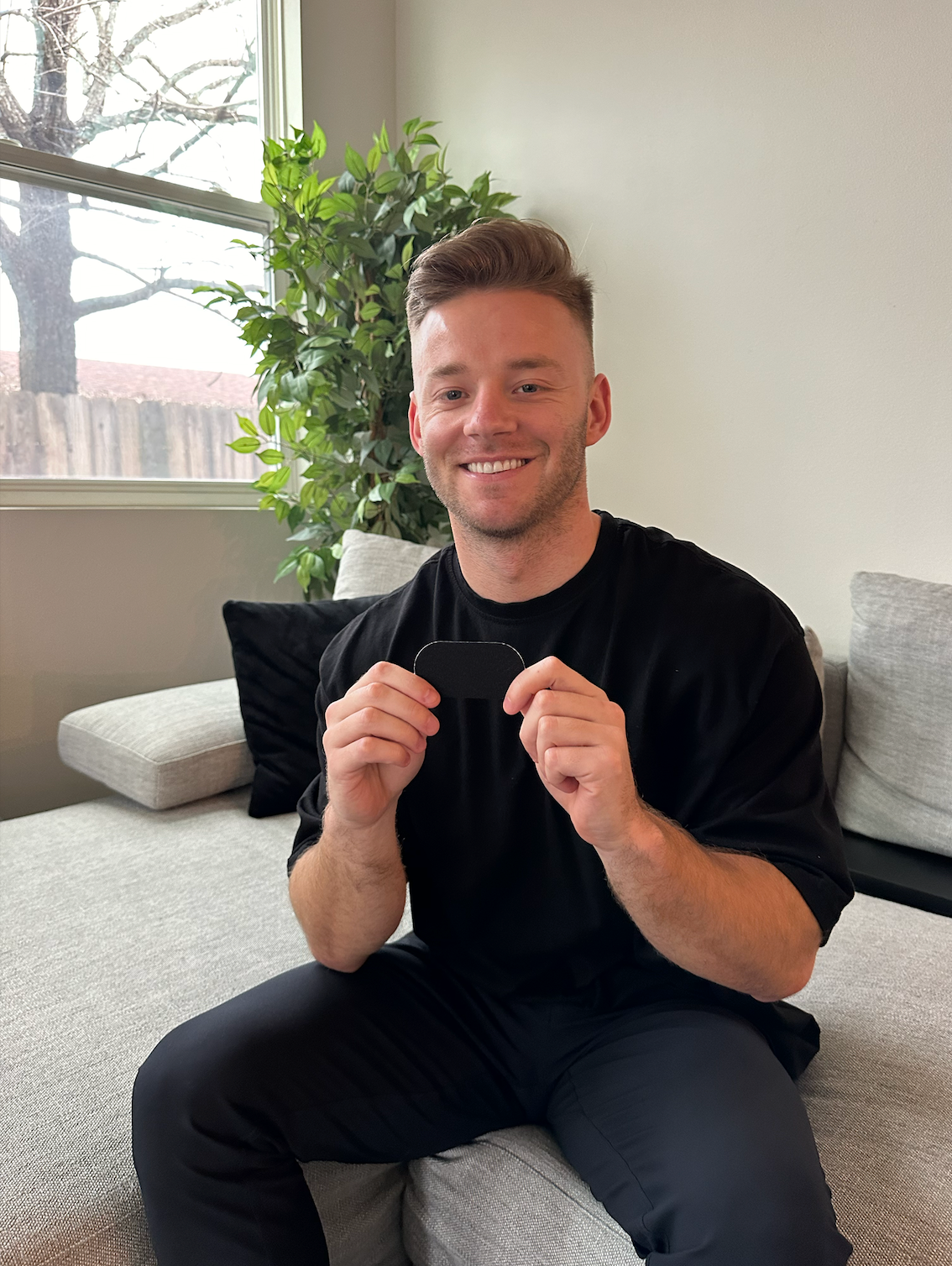In the quest for a good night's sleep, we've all tried it all: counting sheep, ditching screens, even investing in fancy pillows. But have you considered the power of... mouth tape?
Yes, you read that right. This simple, unconventional trick is gaining traction in the sleep world, and for good reason. Taping your mouth shut while you sleep (gently, of course!) might sound strange, but the potential benefits are anything but.
Why Breathe Through Your Nose Anyway?
Before diving into the tape, let's talk about why nasal breathing reigns supreme during sleep. Our noses are nature's air filtration systems, equipped to:
- Warm and humidify air: This prevents dry mouth and throat, keeping us comfortable and reducing the risk of infections.
- Filter out dust and allergens: No more waking up sniffling!
- Produce nitric oxide: This gas relaxes blood vessels, improves blood flow, and even boosts cognitive function.
Mouth breathing, on the other hand, can lead to a cascade of sleep woes:
- Snoring: The dreaded nighttime rumble caused by obstructed airways.
- Dry mouth and throat: Not ideal for a restful sleep.
- Sleep apnea: A serious condition where breathing repeatedly stops and starts throughout the night.
Enter the Mouth Tape Magic:
By gently encouraging nasal breathing, mouth tape can potentially:
- Reduce snoring: Studies show significant improvements in both snoring intensity and frequency.
- Improve sleep quality: Deeper, more restful sleep thanks to better oxygen intake and reduced disruptions.
- Boost alertness and cognitive function: Nitric oxide, remember? Hello, morning clarity!
- Enhance oral health: Dry mouth is a breeding ground for bacteria, leading to cavities and gum disease. Nasal breathing keeps things nice and moist.
- Alleviate allergy symptoms: Dust and allergens get filtered out, leading to less sniffling and congestion.
Is Mouth Tape Right for You?
While generally safe for healthy adults, mouth tape isn't a one-size-fits-all solution. Consult your doctor if you have:
- Any underlying respiratory conditions
- Sensitive skin
- Concerns about claustrophobia
Ready to Tape Your Way to Sleep Nirvana?
Here are some tips for safe and effective mouth taping:
- Start slow: Try a small piece of tape on your upper lip first to get used to the feeling.
- Choose the right tape: Look for hypoallergenic, breathable options designed for sensitive skin.
- Moisturize your lips: Prevent dryness and irritation.
- Listen to your body: If you feel uncomfortable or have difficulty breathing, stop using the tape.
Remember, consistency is key! It may take a few nights to adjust, but the potential rewards for your sleep and overall health are well worth the effort. So, ditch the counting sheep and grab some gentle mouth tape. Sweet dreams (and easy breathing) await!
I hope this blog post gives you a comprehensive overview of the benefits of mouth tape for sleep. Remember, it's always best to consult with your doctor before trying any new sleep remedies. But if you're looking for a simple, natural way to improve your sleep quality, mouth tape might just be the answer you've been dreaming of.



Leave a comment
This site is protected by hCaptcha and the hCaptcha Privacy Policy and Terms of Service apply.